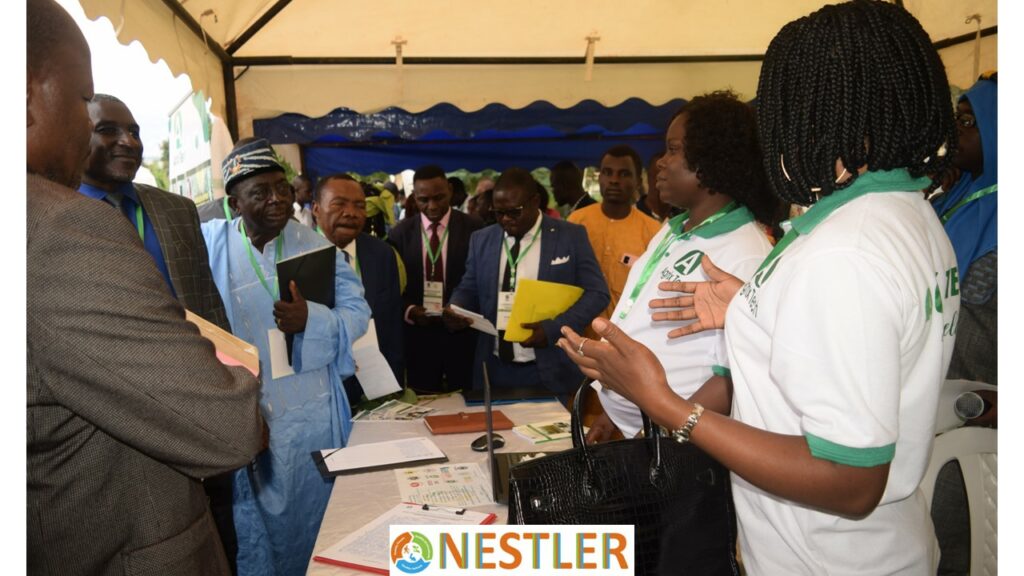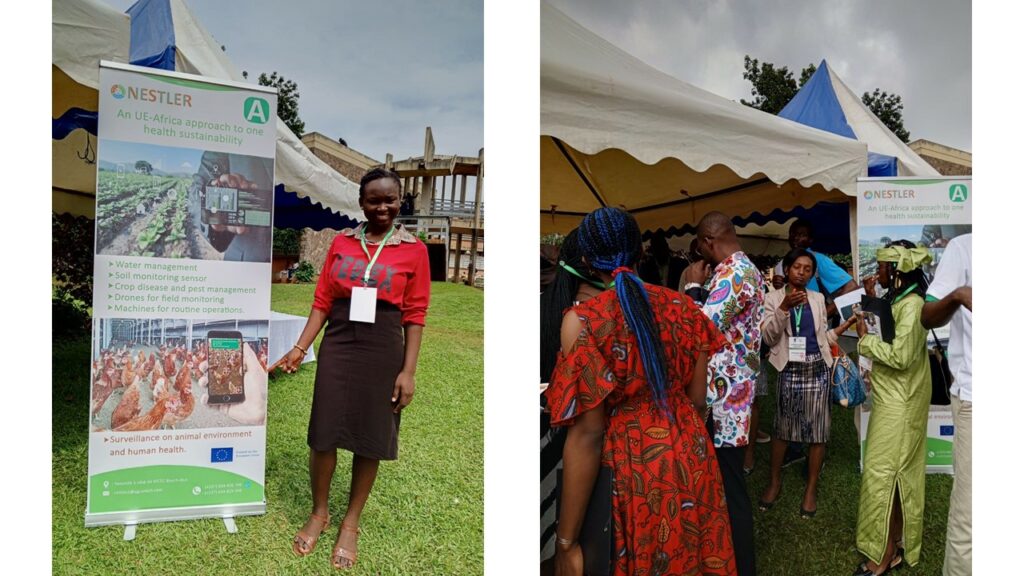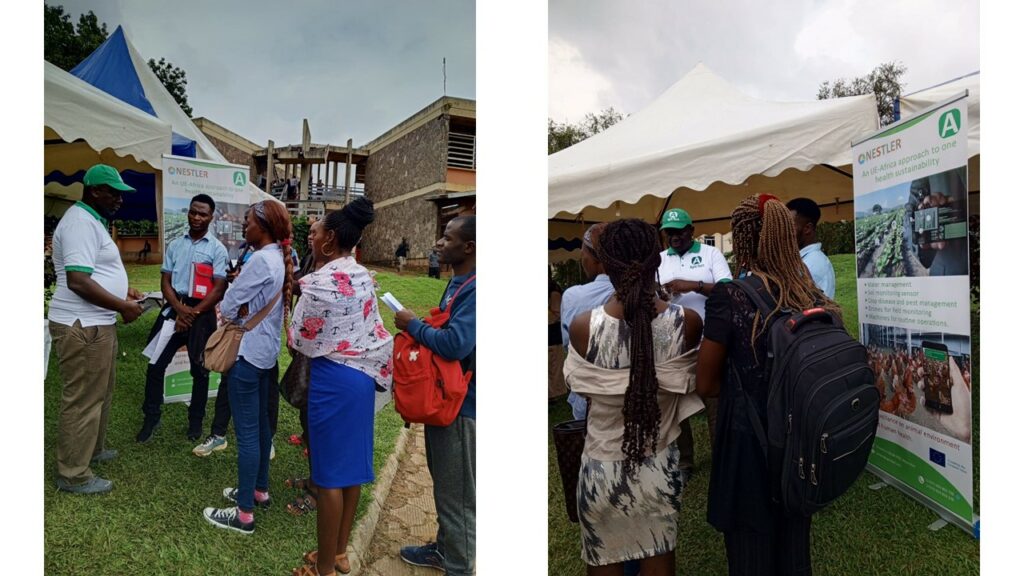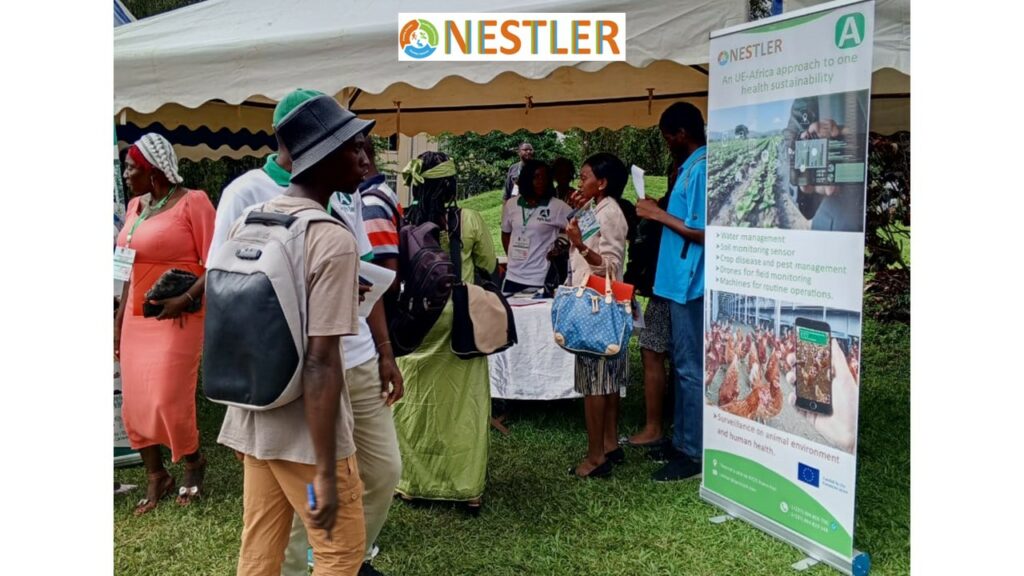The NESTLER project was presented at the 2nd Phytopathology Conference. The 2nd Phytopathology Conference: Protection of cultivated and forest plants, food security and agricultural entrepreneurship was held in Yaounde, Cameroon, on the 26th and 27th of October 2023. The conference was conducted under the patronage of the Rector of the University of Yaounde I. In his welcoming remarks, Pr. Ambang Zachée, head of the Department of Plant Biology and Physiology and chairman of the organizing committee, emphasized the importance of cultivated and forest plants for mankind, the environment, biodiversity and others. Thus, to ensure food security and effectively combat climate change, it is essential to protect plants in a sustainable way. Hence the importance of plant pathology, which is to plants what medicine is to man.
Several topics on plant protection, food security and entrepreneurship were discussed. It was said that plants must be protected, and that we must not only produce to combat food insecurity. Emphasis should also be placed on the quality of the crops produced, hence the need to use biological control methods such as the use of pesticide plants (A. indica, J. curcas, T. péruviana…), entomopathogenic fungi such as B. bassiana, and other fungi and bacteria that kill plant pathogenic fungi such as Trichoderma sp (fungi) and Pseudomonas sp (bacteria). The problem of popularizing research results was also addressed. Many researches are carried out in universities and research institutions every year, but unfortunately most of them are never made available to the target audience, i.e. farmers. From now on, results of research have to be made available to target audiences. To achieve this, the target audience, the language used, the communication channel and the niche need to be carefully chosen so that the research results can be applied on the field by farmers.
After several inaugural lectures and round tables, it was noted that Africa in general, and Cameroon in particular, suffer from food insecurity despite the high potential of arable land. Agriculture remains archaic. Farmers continue to produce on a small scale and with very low yields. Those who want good yields use large quantities of chemical fertilizers and pesticides with little regard for human health or the environment.
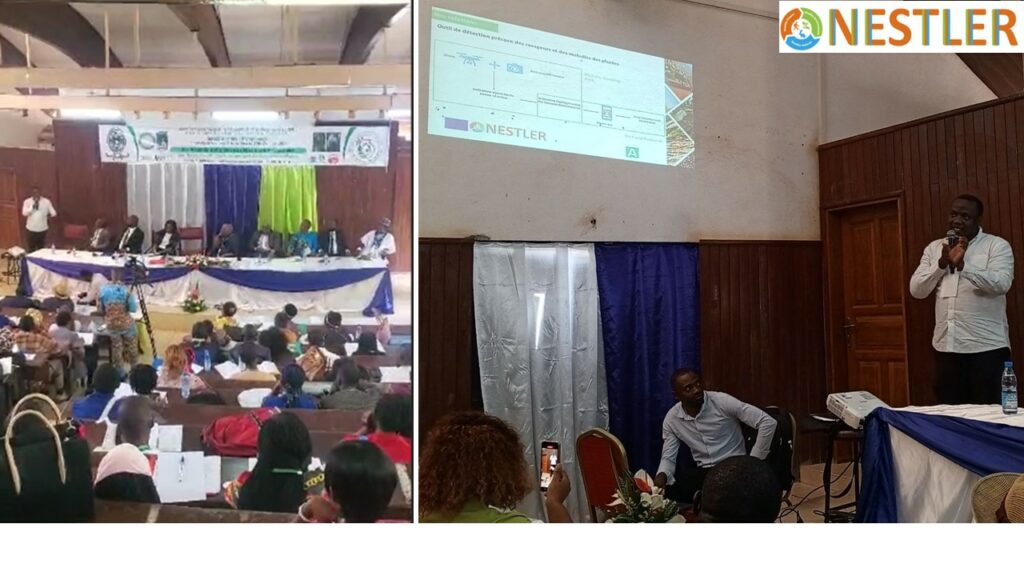
As an answer to this problem, the CEO of Agrix Tech, Mr Adamou Nchange Kouotou, a partner in the conference, presented the NESTLER project, which aims to bring together interdisciplinary technological advances to effectively monitor the well-being of animals, plants, and humans in a holistic approach. So, for quantitative and qualitative agricultural production, African agriculture needs to be digitized. We need to produce a lot, and produce sustainably for the well-being of plants, people, and animals. To achieve this, the use of AI, satellite data, IOTs and other digital devices is essential.
Following NESTLER presentation, which drew a standing ovation, the Rector of the University of Yaoundé I, the Dean of the Faculty of Science, the Heads of departments, researchers, administrative authorities, farmers and students in attendance were treated to a demonstration of the mobile applications for plant disease and pest detection, as well as for disease detection and welfare of chicken, developed as part of the NESTLER project. Finally, Agrix Tech was urged by the conference organizer to communicate on the progress of the NESTLER project and to disseminate the results to research institutions and farmers in order to promote food self-sufficiency.
